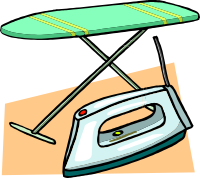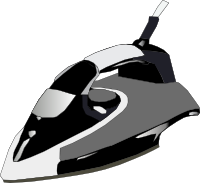Associations to the word «Press»
Noun
- Throng
- Oklahoma
- Hatch
- Tear
- Squeeze
- Stomach
- Naval
- Lansing
- Whine
- Austin
- Throttle
- Gazette
- Nose
- Gasp
- Vial
- Brunswick
- Warmth
- Monograph
- Sole
- Quixote
- Ames
- Printer
- Typing
- Pistol
- Bulb
- New
- Hoover
- California
- Binocular
- Back
- Martin
- Shoulder
- Rib
- Publishing
- Mass
- Nostril
- Lock
- Erection
- Elayne
- Az
- Mouth
- Philadelphia
- Trenton
- Vinyl
- Editor
- Newspaper
- Publicity
- Push
- Edinburgh
- Waist
- Nonfiction
- Nozzle
- Kendrick
- Correspondent
- Editorial
- Essay
- Door
Adjective
Pictures for the word «Press»
Wiktionary
PRESS, noun. (countable) A device used to apply pressure to an item.
PRESS, noun. (countable) A printing machine.
PRESS, noun. (uncountable) A collective term for the print-based media (both the people and the newspapers).
PRESS, noun. (countable) A publisher.
PRESS, noun. (countable) (Scotland) (especially in Ireland and ) An enclosed storage space (e.g. closet, cupboard).
PRESS, noun. (countable) (weightlifting) An exercise in which weight is forced away from the body by extension of the arms or legs.
PRESS, noun. (countable) (wagering) An additional bet in a golf match that duplicates an existing (usually losing) wager in value, but begins even at the time of the bet.
PRESS, noun. (countable) Pure, unfermented grape juice.
PRESS, noun. A commission to force men into public service, particularly into the navy.
PRESS, verb. (ambitransitive) to exert weight or force against, to act upon with with force or weight
PRESS, verb. (transitive) to compress, squeeze
PRESS, verb. (transitive) to clasp, hold in an embrace; to hug
PRESS, verb. (transitive) to reduce to a particular shape or form by pressure, especially flatten or smooth
PRESS, verb. (transitive) (sewing) To flatten a selected area of fabric using an iron with an up-and-down, not sliding, motion, so as to avoid disturbing adjacent areas.
PRESS, verb. (transitive) to drive or thrust by pressure, to force in a certain direction
PRESS, verb. (transitive) (obsolete) to weigh upon, oppress, trouble
PRESS, verb. (transitive) to force to a certain end or result; to urge strongly, impel
PRESS, verb. To try to force (something upon someone); to urge or inculcate.
PRESS, verb. (transitive) to hasten, urge onward
PRESS, verb. (transitive) to urge, beseech, entreat
PRESS, verb. (transitive) to lay stress upon, emphasize
PRESS, verb. (ambitransitive) to throng, crowd
PRESS, verb. (transitive) (obsolete) to print
PRESS, verb. To force into service, particularly into naval service.
PRESS AGENCY, noun. An organisation that gathers and distributes news.
PRESS AGENT, noun. A person who organizes the publicity for a firm or organization, and acts as an intermediary with the press and other media
PRESS AGENTS, noun. Plural of press agent
PRESS AHEAD, verb. (intransitive) To continue towards an objective
PRESS AVAIL, noun. (US) (politics) (journalism) An open-ended question and answer session with the media.
PRESS AVAILABILITY, noun. (US) (politics) (journalism) An event at which a politician is made available for questioning by the media.
PRESS AVAILS, noun. Plural of press avail
PRESS BOX, noun. (sports) The section in a stadium or arena set aside for the press, or specifically for sportscasters.
PRESS BOX, noun. (manufacturing) In a cotton gin, the box in which lint is compacted by a tramper.
PRESS BRAKE, noun. A machine used in cold-forming sheet metal or strips of metal into desired profiles.
PRESS BRAKES, noun. Plural of press brake
PRESS CAKE, noun. A cake of compressed material, such as the cake resulting from compressing the meal powder in making gunpowder; the pressed product at various stages of coal tar manufacture; or the vegetable residue after the sugar has been expressed in beet-sugar manufacture.
PRESS CAKES, noun. Plural of press cake
PRESS CARD, noun. A press or media credential issued as identification to newsgatherers who work professionally in media. The principal occupations covered are reporters and writers, photographers, film and video camera operators and crews and other broadcasting workers such as producers and researchers.
PRESS CHARGES, verb. To formally accuse a person of a crime, especially by an ordinary person.
PRESS CONFERENCE, noun. A question and answer session with members of television, print and other media.
PRESS CONFERENCES, noun. Plural of press conference
PRESS CORPS, noun. A collective term for all the press members.
PRESS FORWARD, verb. To proceed or move forward with more urgency
PRESS GAGGLE, noun. (US) (journalism) (politics) An informal off-camera briefing given by a spokesperson or politician.
PRESS GAGGLE, noun. (rare) A noisy crowd of journalists.
PRESS GAGGLES, noun. Plural of press gaggle
PRESS HOME, verb. (transitive) To build upon (an advantage).
PRESS INTO SERVICE, verb. (idiomatic) To make someone perform a task or duty, especially one they are not prepared or willing to do; to make something serve a function, especially one it was not designed or intended for.
PRESS KIT, noun. A packaged set of promotional and news materials about a person, band or product for media to use. The kit will often include a cd or demo along with reviews, photos, and background information. The kit is distributed to media sources, such as radio stations and newspapers.
PRESS OFFICE, noun. A department within a company or organization with responsibility for dealing with the press.
PRESS OFFICER, noun. Press secretary
PRESS ON, verb. (idiomatic) to persist, continue to advance
PRESS OUT, verb. Extinguish by crushing; as a cigar.
PRESS OUT, verb. Obtain from a substance, as by mechanical action.
PRESS OUT, verb. Press from a plastic, as of records.
PRESS POOL, noun. A group of news organizations pooling their resources in the collection of news. A video pool or pool feed is then distributed to members of the pool, who are free to edit it or use it as they see fit.
PRESS POT, noun. A cafetière; a French press.
PRESS POTS, noun. Plural of press pot
PRESS PROOF, noun. (printing) (historical) The last proof for correction before sending to press.
PRESS PROOF, noun. (printing) (historical) A proof taken on a press, especially to show impression, margins, colour, etc.
PRESS PROOFS, noun. Plural of press proof
PRESS RELATIONS, noun. The tasks of building, maintaining and exploiting good relationships between an organization and print and broadcast media organizations.
PRESS RELEASE, noun. An official written statement that is sent to the media so that it can be publicized.
PRESS RELEASES, noun. Plural of press release
PRESS REVISE, noun. (printing) (historical) A proof for final revision.
PRESS REVISES, noun. Plural of press revise
PRESS ROLL, noun. A type of heavy roller, especially as used in papermaking.
PRESS ROLL, noun. (jazz) A type of drumroll whereby the drumsticks are pressed against the skin of the drum.
PRESS ROLLS, noun. Plural of press roll
PRESS SECRETARY, noun. A senior advisor who provides advice on how to deal with the news media and helps the employer to maintain a positive public image.
PRESS SOMEONE'S BUTTONS, verb. Alternative form of push someone's buttons
PRESS STUD, noun. Snap fastener
PRESS STUDS, noun. Plural of press stud
PRESS THE FLESH, verb. (idiomatic) To shake hands and socialize, especially in a political gathering.
PRESS THE PANIC BUTTON, verb. (idiomatic) To start to panic
PRESS TIME, noun. The time that a publication is sent to be printed. Commonly used in reference to newspapers.
PRESS TIMES, noun. Plural of press time
Dictionary definition
PRESS, noun. The state of demanding notice or attention; "the insistence of their hunger"; "the press of business matters".
PRESS, noun. The print media responsible for gathering and publishing news in the form of newspapers or magazines.
PRESS, noun. A machine used for printing.
PRESS, noun. A dense crowd of people.
PRESS, noun. A tall piece of furniture that provides storage space for clothes; has a door and rails or hooks for hanging clothes.
PRESS, noun. Clamp to prevent wooden rackets from warping when not in use.
PRESS, noun. Any machine that exerts pressure to form or shape or cut materials or extract liquids or compress solids.
PRESS, noun. A weightlift in which the barbell is lifted to shoulder height and then smoothly lifted overhead.
PRESS, noun. The act of pressing; the exertion of pressure; "he gave the button a press"; "he used pressure to stop the bleeding"; "at the pressing of a button".
PRESS, verb. Exert pressure or force to or upon; "He pressed down on the boards"; "press your thumb on this spot".
PRESS, verb. Force or impel in an indicated direction; "I urged him to finish his studies".
PRESS, verb. To be oppressive or burdensome; "weigh heavily on the mind", "Something pressed on his mind".
PRESS, verb. Place between two surfaces and apply weight or pressure; "pressed flowers".
PRESS, verb. Squeeze or press together; "she compressed her lips"; "the spasm contracted the muscle".
PRESS, verb. Crowd closely; "The crowds pressed along the street".
PRESS, verb. Create by pressing; "Press little holes into the soft clay".
PRESS, verb. Be urgent; "This is a pressing problem".
PRESS, verb. Exert oneself continuously, vigorously, or obtrusively to gain an end or engage in a crusade for a certain cause or person; be an advocate for; "The liberal party pushed for reforms"; "She is crusading for women's rights"; "The Dean is pushing for his favorite candidate".
PRESS, verb. Press from a plastic; "press a record".
PRESS, verb. Make strenuous pushing movements during birth to expel the baby; "`Now push hard,' said the doctor to the woman".
PRESS, verb. Press and smooth with a heated iron; "press your shirts"; "she stood there ironing".
PRESS, verb. Lift weights; "This guy can press 300 pounds".
PRESS, verb. Ask for or request earnestly; "The prophet bid all people to become good persons".
Wise words
To use the same words is not a sufficient guarantee of
understanding; one must use the same words for the same
genus of inward experience; ultimately one must have one's
experiences in common.



